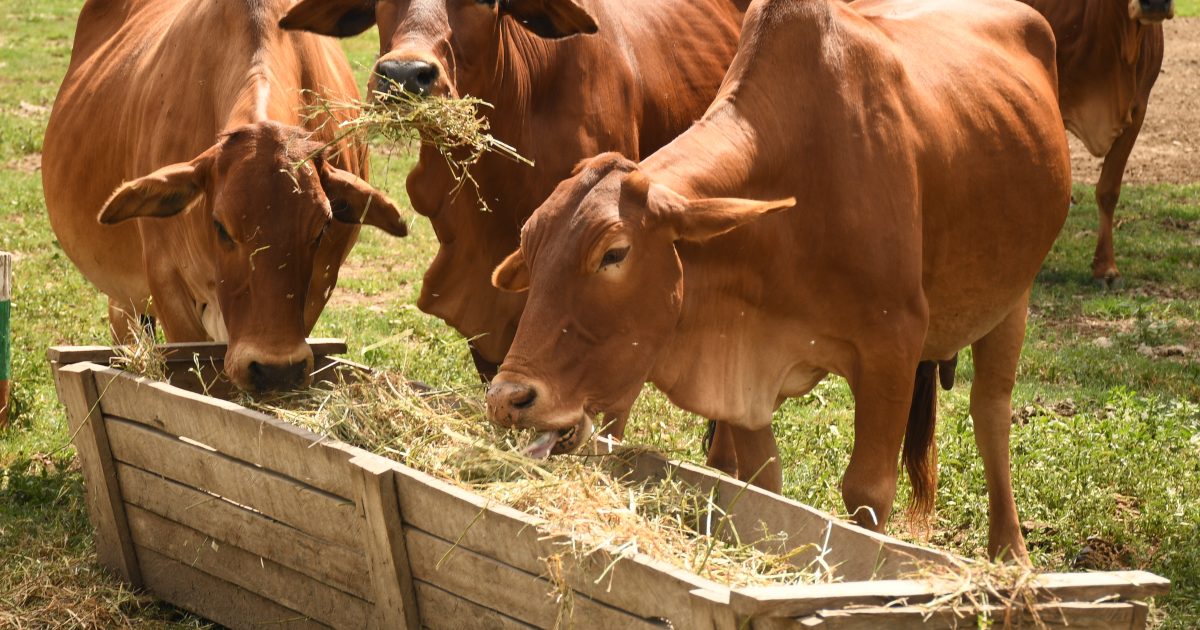The Association of Kenya Feed Manufacturers (AKEFEMA) has said lifting the ban on importing Genetically Modified Organism (GMOs) products in the country will lower the cost of animal feeds by up to 30 per cent.
The Association noted that the government banned the importation of GMO products in 2012, but lifted the ban last year, although four cases opposing the moratorium were filed in court resulting to court injunctions.
According to the association chairman Joe Karuri, the expected court ruling due in October will chart the path and determine the future cost of livestock feeds for thousands of farmers.
Karuri said lifting the ban will allow local feed manufacturers to import highly nutritious, quality and high-yielding GMO products that will help lower the cost of local feeds by 30 per cent.
Speaking on the phone, Karuri said it is time Kenya joins its African peers in lifting the ban noting that the over 10-year ban has had a ripple effect in the sector leading to increased feed prices for farmers.
The chairman added that lifting the ban will see Kenya import key feed manufacturing ingredients such as soybean meal and yellow maize that promise protein-rich feeds that will increase livestock productivity.
“Over 60 per cent of materials needed to manufacture feeds for the local markets is imported leading to increased cost of production and high cost of feeds and livestock products”, said Karuri.
Karuri said the country produces 2.5 million metric tonnes of feed every year for the local market and the capacity can be accelerated by availing required raw materials year-round.
In addition, the chair said due to the devastating effects of prolonged drought two years ago, the cost of feed had skyrocketed by almost 50 per cent for a 70 kg bag which most farmers could not afford.
He said although the government intervened by allowing duty-free importation of GMO-free maize from Ukraine, the move has since been hampered by the ongoing war with Russia leading to a shortage of raw materials.
Lifting the ban, the chair noted will allow local production of biofuel from low-cost GMO products which will be used to lower the cost of production and produce nutritious solubles that will increase feed quality.
At the same time, the chairman said, the association is opposed to a proposal in the Finance Bill 2024 that seeks to open a window for the importation of non-fertilized eggs (table eggs) from the East African Community countries.
The Association, he said, has petitioned the Finance Committee on the proposal cautioning that it will flood the Kenya market with low-cost eggs and other products due to the low cost of production from neighbouring countries.
Karuri noted that the move will open a window for unscrupulous traders to sneak in fertilized eggs through our porous borders, a move he said will kill the multi-billion hatchery business for locals.
“We urge the finance committee to drop the proposal to open a window for the importation of table eggs from EAC countries because the move will kill local business,” said Karuri.
Kenya has already adopted the cultivation of GMO BT cotton and has completed clinical trials for BT maize and cassava which are awaiting the court determination of the cases filed before they are released to the market.
According to Roy Mugira from the National Biosafety Authority, the agency has adopted a raft of regulations and laws that guarantee the safety of all approved GMO products in the country.
Mugira said the government is ready to release into the market adopted GMO products once the ongoing case opposing the lifting of the ban is determined arguing that Kenya is lagging in the cultivation and use of GMOs.
According to the Ministry of Agriculture and Livestock, Kenya requires 55 million metric tonnes of feed annually but only produces 40 percent leaving a huge deficit of 33 million metric tonnes.
The ministry statistics indicate that out of the 40 per cent the country produces, most of it is lost to post-harvest losses due to poor conservation and management.
By Erastus Gichohi



